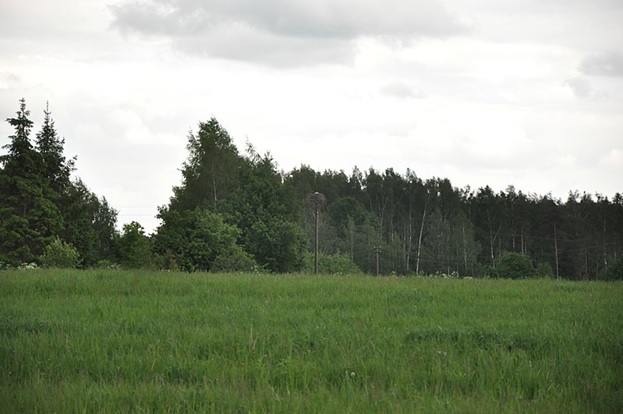
BY EPHREM ANDARGACHEW
Environmental problems and climate change effects such as land degradation, flooding, soil erosion, deforestation, biodiversity loss, and so on have been forcing the world to stand together. Currently, building a green and climate-resilient economy based on renewable energy has been given due attention and applauded.
Because the effect of climate change significantly impacted the planet. It has been also causing extreme weather events like tropical storms, wildfires, severe droughts, and heat waves, decreasing crop production, causing disruption to animals’ natural habitats, and so on.
Studies and Reports have repeatedly shown that the emission of carbon is the main perpetrator that causes global warming. The Environmental Protection Agency has listed sectors that cause carbon dioxide emissions which include transportation, electricity production, industry, commercial and residential, agriculture, and land use.
Currently, electricity production creates carbon emissions that threaten the livelihood of the planet, animals, and humans. Hence, carbon emissions have far-ranging environmental and health effects including extreme weather, food supply disruptions, and increased wildfires. Therefore, the world calls for a united voice and action more than ever in order to limit the toxic carbon emission into the atmosphere.
Taking the negative impact of climate change and Africa’s huge energy potential for renewable energy into consideration, AU has planned to achieve access to renewable electricity energy in the continent by 2030 in line with the AU Agenda 2063 and the UN Sustainable Development Goal Number 7.
According to AU Infrastructure Commission Commissioner Amani Abou-Zeid (Ph.D.) said that energy deficit has become a bottleneck for Africans to come out of poverty. Therefore, member states, by avoiding environmental pollution electricity production activities, should develop electricity from renewable energy to fulfill the energy demand of the people.
It is true that many African countries including Ethiopia have been suffering from acute energy shortages which cause deforestation of the forest resources of the continent. Africa, in spite of all the available potential, the energy sector is still in its infancy stage. A significant number of the population lives without access to electricity. Ethiopia, as part of the continent, has one of the lowest electricity consumption per capita in Africa.
In order to tackle the energy shortage in the country, Ethiopia has been constructing a hydroelectricity dam. Especially, the construction of the Great Ethiopian Renaissance Dam (GERD), apart from solving access to electricity problems in Ethiopia, has come up with environmental protection lessons for Africans. It is also an indication of the effective use of natural resources for national development.
Bahir Dar University Political Science and International Relations Assistant Professor Yayew Genet told The Ethiopian Herald that the (GERD) is an exemplary project for Africa’s renaissance as it is a great tool to lift Ethiopia out of poverty without harming others by exploiting natural resources on its own capacity.
Haramaya University Economics lecturer Firzer Tilahun told the Ethiopian Press Agency that using renewable energy has both environmental and economic benefits. So, it is significant to comprehend the value of renewable energy for this planet since every development issue links to sustainable energy.
Ethiopian Ministry of Water and Energy Minister Dr. Engineer Habtamu said that Ethiopia with various stakeholders has made efforts to promote environmentally friendly and clean renewable energy sources across the country.
The country wants to develop a green hydro energy sector as it has planned to apply green hydrogen technology to mitigate climate change, save energy, and shift from fossil fuel energy consumption to green energy.
When Ethiopia develops its water energy from dams considering neighboring countries and other interests based on the international agreement, a win-win tie can be consolidated. Ethiopia’s selling and sharing energy with its neighbors like Djibouti, South Sudan, and Kenya has an environmental impact. In this way Ethiopia is benefiting the world by producing electricity from renewable energy, he said.
Ethiopian Prime Minister Abiy Ahmed during the announcement of the successful completion of the Grand Ethiopian Renaissance Dam’s third filling said that the people of Ethiopians have put everything into the realization of the completion of the dam.
Ethiopia, either individually or collectively, has made various efforts to mitigate climate change. These efforts are imperative to counter climate change and pave the way for economic growth in line with protecting and conserving the environment.
Because protecting the environment is one of Ethiopia’s key development goals since it is a determinant of human health and a healthy ecosystem that supports the biodiversity of the country.
Hence, the achievement recorded in terms of GERD, Green Legacy initiative, green transportation program via electricity vehicles, and so on will continue to be repeated in all sectors. Indeed, Ethiopia’s initiative to produce energy from renewable sources is an important initiative not only for linking environmental protection with economic growth and development but also to put a brick in the efforts of climate change mitigation.
The Ethiopian Herald 14 August 2022




